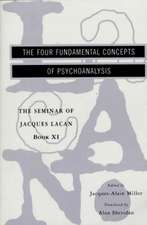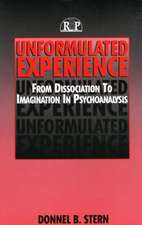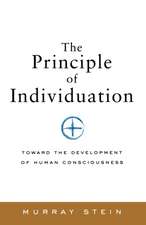Beyond Discontent: 'Sublimation' from Goethe to Lacan: New Directions in German Studies
Autor Professor Eckart Goebel Traducere de James C. Wagneren Limba Engleză Paperback – 27 iun 2012
| Toate formatele și edițiile | Preț | Express |
|---|---|---|
| Paperback (1) | 257.50 lei 6-8 săpt. | |
| Bloomsbury Publishing – 27 iun 2012 | 257.50 lei 6-8 săpt. | |
| Hardback (1) | 625.09 lei 38-50 zile | |
| Bloomsbury Academic – 30 apr 2012 | 625.09 lei 38-50 zile |
Din seria New Directions in German Studies
- 14%
 Preț: 183.70 lei
Preț: 183.70 lei -
 Preț: 470.90 lei
Preț: 470.90 lei - 8%
 Preț: 145.46 lei
Preț: 145.46 lei - 11%
 Preț: 219.84 lei
Preț: 219.84 lei - 23%
 Preț: 190.50 lei
Preț: 190.50 lei -
 Preț: 169.03 lei
Preț: 169.03 lei -
 Preț: 217.09 lei
Preț: 217.09 lei - 7%
 Preț: 134.49 lei
Preț: 134.49 lei - 14%
 Preț: 183.24 lei
Preț: 183.24 lei -
 Preț: 217.62 lei
Preț: 217.62 lei - 21%
 Preț: 214.78 lei
Preț: 214.78 lei - 30%
 Preț: 718.85 lei
Preț: 718.85 lei - 22%
 Preț: 237.93 lei
Preț: 237.93 lei - 22%
 Preț: 225.77 lei
Preț: 225.77 lei - 22%
 Preț: 256.77 lei
Preț: 256.77 lei - 22%
 Preț: 225.41 lei
Preț: 225.41 lei - 23%
 Preț: 222.46 lei
Preț: 222.46 lei - 30%
 Preț: 714.12 lei
Preț: 714.12 lei - 30%
 Preț: 568.22 lei
Preț: 568.22 lei - 21%
 Preț: 218.36 lei
Preț: 218.36 lei - 11%
 Preț: 218.47 lei
Preț: 218.47 lei - 13%
 Preț: 186.35 lei
Preț: 186.35 lei - 30%
 Preț: 569.94 lei
Preț: 569.94 lei - 21%
 Preț: 218.83 lei
Preț: 218.83 lei - 22%
 Preț: 256.20 lei
Preț: 256.20 lei - 14%
 Preț: 190.06 lei
Preț: 190.06 lei - 23%
 Preț: 197.14 lei
Preț: 197.14 lei - 13%
 Preț: 255.11 lei
Preț: 255.11 lei - 22%
 Preț: 226.79 lei
Preț: 226.79 lei - 30%
 Preț: 568.14 lei
Preț: 568.14 lei - 14%
 Preț: 191.85 lei
Preț: 191.85 lei -
 Preț: 183.24 lei
Preț: 183.24 lei -
 Preț: 231.81 lei
Preț: 231.81 lei - 22%
 Preț: 230.24 lei
Preț: 230.24 lei
Preț: 257.50 lei
Preț vechi: 295.40 lei
-13% Nou
Puncte Express: 386
Preț estimativ în valută:
49.28€ • 50.91$ • 41.01£
49.28€ • 50.91$ • 41.01£
Carte tipărită la comandă
Livrare economică 25 martie-08 aprilie
Preluare comenzi: 021 569.72.76
Specificații
ISBN-13: 9781441178336
ISBN-10: 1441178333
Pagini: 280
Dimensiuni: 138 x 216 x 23 mm
Greutate: 0.36 kg
Editura: Bloomsbury Publishing
Colecția Continuum
Seria New Directions in German Studies
Locul publicării:New York, United States
ISBN-10: 1441178333
Pagini: 280
Dimensiuni: 138 x 216 x 23 mm
Greutate: 0.36 kg
Editura: Bloomsbury Publishing
Colecția Continuum
Seria New Directions in German Studies
Locul publicării:New York, United States
Caracteristici
Reconstructs a well-known but little understood key concept of the psychoanalytic theory of culture: sublimation
Notă biografică
Eckart Goebel is Professor of German and Comparative Literature, University of Tübingen, Germany. He is the author of Konstellation und Existenz. Kritik der Geschichte um 1930: Studien zu Heidegger, Benjamin, Jahnn und Musil (1996), Am Ufer der zweiten Welt. Jean Pauls "Poetische Landschaftsmalerei" (1999), Der engagierte Solitär. Die Gewinnung des Begriffs Einsamkeit aus der Phänomenologie der Liebe im Frühwerk Jean-Paul Sartres (2001), Charis und Charisma. Grazie und Gewalt von Winckelmann bis Heidegger (2006) and Jenseits des Unbehagens. Sublimierung von Goethe bis Lacan (2009). He serves on the Editorial Board of Oxford German Studies.James C. Wagner is a Ph.D. candidate in the Department of German at New York University, USA.
Cuprins
Foreword and AcknowledgmentsPreface1. Trilogy of Passion: Goethe as Paradigm and Provocation2. The Sound of Psychoanalysis: Arthur Schopenhauer3. Transfigured Physis: Friedrich Nietzsche4. Self-Control: Sigmund Freud5. Walking the Dog: Creaturely Transcendence in Thomas Mann6. Sublimation of Nature: Theodor W. Adorno7. Das Ding: Jacques Lacan's LutherBibliographyIndex
Recenzii
In this highly sophisticated and kaleidoscopic account, Eckart Goebel offers a penetrating study of a topic that, despite its ubiquity, has hitherto failed to receive a sustained and critical analysis: 'sublimation.' With theoretical astuteness and literary elegance, philosophical and literary works are brought into fascinating and reciprocally illuminating conversation.
It is good news that we finally have a book on the concept of sublimation, but we are particularly fortunate to have gotten such a smart, profound, and moving one. Beyond Discontent is much more than the exploration of a Freudian concept - it is an extraordinarily successful study in the history of a figure of thought central to all theories of civilization.
Eckhart Goebel offers lucid and illuminating explorations of the concept of sublimation. [showing] that the notion of sublimation is not so much a single doctrine as a continuing debate on the relationship between the self and nature, the individual and civilization. This review cannot do justice to the richness of Beyond Discontent. Throughout, Goebel's treatment is thorough without being pedantic, philosophically and theoretically sophisticated without being obscure. Both elegant and accessible, it is the summary and starting point for anyone who would 'reflect a little longer' on the complex and ubiquitous doctrine of sublimation.
Goebel (German studies, New York Univ.) reframes a central tenet of Freudian thought, sublimation, to tell an alternative story of modern intellectual history and thought. ... Particularly enlightening is the third chapter on Nietzsche and his methodical use of sublimation and its three-dimensionality (culture, individual psychology, philosophy), which Goebel invokes to reexamine central concepts of Nietzsche's thought. Chapter 6, "The Sublimation of Nature: Theodor W. Adorno," offers a refreshing perspective on critical theory ... making this an enjoyable read in cultural theory even for those less interested in sublimation. ... This is a book for intellectual historians as well as practitioners of psychoanalysis.
It is good news that we finally have a book on the concept of sublimation, but we are particularly fortunate to have gotten such a smart, profound, and moving one. Beyond Discontent is much more than the exploration of a Freudian concept - it is an extraordinarily successful study in the history of a figure of thought central to all theories of civilization.
Eckhart Goebel offers lucid and illuminating explorations of the concept of sublimation. [showing] that the notion of sublimation is not so much a single doctrine as a continuing debate on the relationship between the self and nature, the individual and civilization. This review cannot do justice to the richness of Beyond Discontent. Throughout, Goebel's treatment is thorough without being pedantic, philosophically and theoretically sophisticated without being obscure. Both elegant and accessible, it is the summary and starting point for anyone who would 'reflect a little longer' on the complex and ubiquitous doctrine of sublimation.
Goebel (German studies, New York Univ.) reframes a central tenet of Freudian thought, sublimation, to tell an alternative story of modern intellectual history and thought. ... Particularly enlightening is the third chapter on Nietzsche and his methodical use of sublimation and its three-dimensionality (culture, individual psychology, philosophy), which Goebel invokes to reexamine central concepts of Nietzsche's thought. Chapter 6, "The Sublimation of Nature: Theodor W. Adorno," offers a refreshing perspective on critical theory ... making this an enjoyable read in cultural theory even for those less interested in sublimation. ... This is a book for intellectual historians as well as practitioners of psychoanalysis.

















